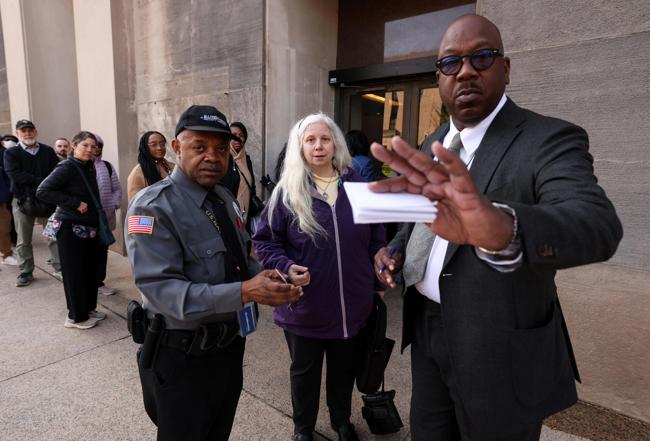Summary
In every corner of the FDA, and at sister health agencies like the CDC, support staff, specialists, and scientists were hit with DOGE pink slips.
Source: USA TODAY on MSN.com

AI News Q&A (Free Content)
Q1: What impact do the mass firings at the FDA and CDC have on drug approvals and food inspections?
A1: The mass firings at the FDA and CDC are likely to result in slower approval processes for new medications and fewer food safety inspections. Although the Health and Human Services Department stated that the cuts would not affect drug or food reviewers, experts predict unavoidable impacts on the timing of drug and device approvals due to reduced staff capacity.
Q2: Who is Robert F. Kennedy Jr., and what role does he play in the current health agencies' situation?
A2: Robert F. Kennedy Jr. is an American politician who serves as the United States Secretary of Health and Human Services since February 2025. Known for his anti-vaccine stance and public health conspiracy theories, Kennedy's leadership has been associated with significant cuts in federal health agencies, including the FDA.
Q3: How are the FDA and CDC restructuring under the current federal administration impacting public health services?
A3: The restructuring efforts, aimed at reducing the federal workforce, have led to significant cuts in various health agencies. This has raised concerns about the potential risks to public health services, including delays in drug approvals and diminished capacity for food safety inspections due to reduced staffing levels.
Q4: What does recent research suggest about the effects of reduced staffing on public health and safety?
A4: Recent research indicates that reduced staffing in public health agencies can lead to increased waiting times and stress on services, requiring more resources to maintain effective operations. The reduced capacity may compromise the timely detection and response to public health threats, thereby impacting overall safety.
Q5: What are the specific challenges faced by the FDA in maintaining operations after the mass firings?
A5: The FDA faces challenges in maintaining its operations due to a 3,500 full-time employee reduction. Despite assurances that critical review processes will remain unaffected, the agency must manage its workload with significantly fewer staff, potentially leading to bottlenecks in drug approvals and food safety checks.
Q6: How do user fees contribute to the FDA's ability to manage drug and device approvals amidst staffing cuts?
A6: User fees paid by drug companies and medical device makers help the FDA manage timely reviews of new drugs and devices. However, the staffing cuts may still lead to unavoidable delays, despite these financial contributions aimed at maintaining operational efficiency.
Q7: What are the legal and social implications of the mass layoff strategy in federal health agencies?
A7: The mass layoff strategy has faced legal challenges, with allegations of unfair and potentially illegal dismissals. Socially, the strategy has been criticized for reducing crucial services and posing risks to Americans' health and safety, as it may hinder the effective regulation of food and drugs.
References:
- How to Staff When Customers Arrive in Batches





